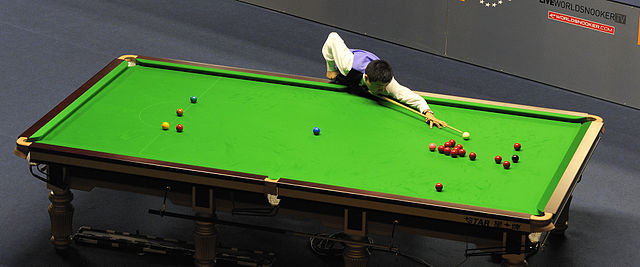
It is a well-known game with a long history. In the 15th century, it was a form of croquet. Later, pool was used to bet. This led directly to the development and use of the pool hall. Pool is now played all over the world, in countries like the United States, Europe, and the Philippines. Many misconceptions surround this popular activity. One is that it's a highly-regulated sport that requires great skill. It is not a game about luck.
Pool is a game that is played with the use of a cue and balls. Although the balls may be small, they play a crucial role in the pool game. They come in many shapes and patterns. Knowing how to properly use the balls is crucial in order for you to fully understand the game. These balls can be quite hard, so it is important to know their reactions to different shots.
Before the 19th Century, pool balls were mostly made of wood. The first decades of the century saw the introduction of clay and other materials to pool. After the mid-19th century, the balls began to be fashioned out of plastic. Some were even made of ivory. Ivory balls were extremely expensive and were still produced until 1920. But they weren't very stable. Celluloid and other materials were also discovered and quickly accepted.

In 1907, the American chemist Leo Baekeland discovered petroleum-based plastic. This material proved to be ideal for pool balls. Plastic was eventually discovered to be a great substitute for original wooden balls.
In the 19th century, pools were installed in parlors where people would bet on horse races. This led to the change in the name. The French queue system, which was an old system to ensure horses didn't cross the finish line, was the original name of the game.
Billiards has evolved from a lawn-game to an indoor game. The most common pool types include nine-ball (9-ball), seven-ball (10-ball), and carom (10) Pool players today can either be single or as a team. Although the rules of the game are standardized, they still have their own names. For a player to win, they must be aware of all the regulations and rules.
Although most pools are located in public areas, it's important to be aware that untreated pools can pose dangers. Public pools can carry germs, which can make them very dangerous. They can also be dangerous and cause serious health problems. Swimming is a popular way for adults to relieve stress.

Among the most dangerous pool accidents are those that involve a child. Salt chlorination systems are becoming more popular over the past decades. These technologies can make your pool safe. However, these systems do not work for every type of pool. You may also want to consider algaecide, which works best in conjunction with chlorine sanitizer.